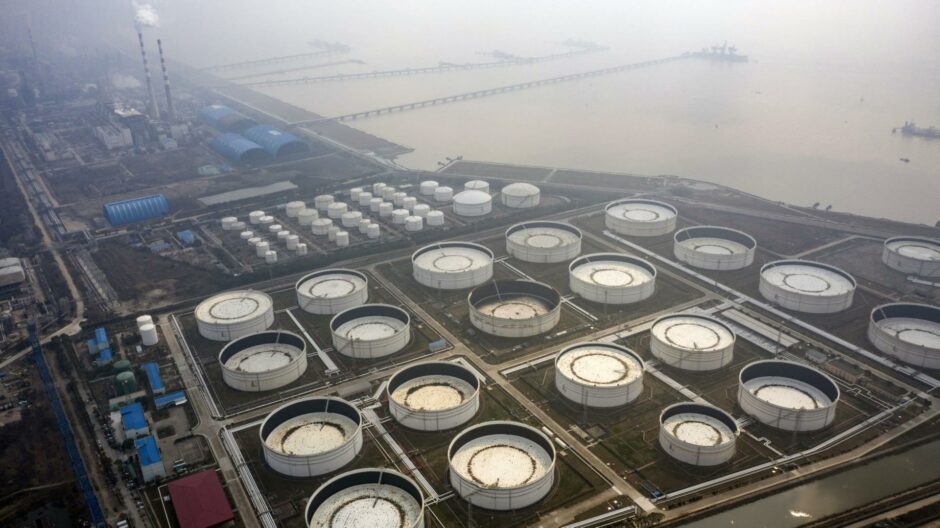
Oil kept falling after capping the biggest loss in almost three weeks on concern that a virus flare-up in China will weigh on global demand.
West Texas Intermediate futures edged lower to trade near $105 a barrel after sliding 7% on Monday. China is tackling its worst outbreak since Wuhan more than two years ago at the start of the pandemic. The highly contagious omicron variant is testing the world’s biggest crude importer’s Covid Zero strategy.
The virus resurgence adds another source of volatility to the market alongside Russia’s war in Ukraine and tensions in the Middle East. OPEC+, meanwhile, meets Thursday to discuss its supply policy for May and the group has signaled it will stick to its existing plan and ratify another modest increase in output.
Shanghai is the latest Chinese city to be caught up in the new outbreak. Rystad Energy estimated a staggered lockdown across the financial hub could cut oil demand by as much as 200,000 barrels a day for the duration of restrictions across the city. About 62 million people in China are either in lockdown or facing one imminently, according to Bloomberg calculations.
“It’s hard to see volatility dying down any time soon,” said Daniel Hynes, a senior commodities strategist at Australia and New Zealand Banking Group Ltd. “The market has really been spooked by the outbreak of Covid-19 in Shanghai and what it could mean for China’s demand of crude oil.”
Oil is still heading for a monthly gain after Russia’s invasion of Ukraine rattled global markets, and the war is raging despite diplomatic efforts for a peace deal. The conflict has fanned inflation, driving up the cost of everything from fuels to food as economies recover from the pandemic.
Prices
- WTI for May delivery declined 1.1% to $104.77 a barrel on the New York Mercantile Exchange at 12:01 p.m. in Singapore.
- Brent for May settlement slid 1.3% to $111 on the ICE Futures Europe exchange after dropping almost 7% on Monday.
- Brent remains in a bullish structure, where near-dated contracts are more expensive than later-dated ones, despite easing over the past week. The prompt timespread for the global benchmark was $2.87 a barrel in backwardation, compared with $3.65 a week earlier.
OPEC+ will ratify an increase of 430,000 barrels a day scheduled for May if no alterations are made. With many members struggling to fulfill their planned increases over the past few months and global demand bouncing back from the pandemic, that decision may cause markets to tighten further.